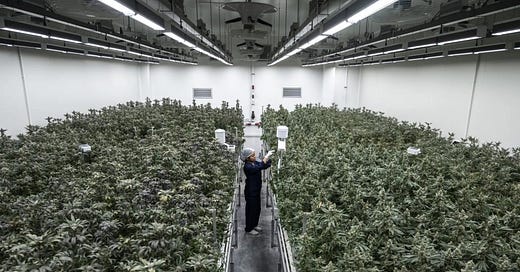The Cannabis & Hemp Act of Thailand just dropped: 2025 marks the beginning of Thailand's cannabis leadership in the region
Keepers of the supply chain face stricter oversight; consumers will be punished with fines for sheer stupidity only.
Thailand unveils new bill to regulate cannabis while keeping it legal
As of January 1st, 2025, cannabis consumers in Thailand will have access to the same wide array of dry flower currently available.
Big trouble could come to those who break simple rules: Do not smoke in public. Do not consume extracts with more than 2 % THC without explicit permission. Do not consume if you are under 20, pregnant or breastfeeding.
These rules have been present for at least one year, with no enforcement.
The significance of this final draft is in what’s missing: There is no “illegalization of recreational use” - which, to make any sense at all, would have required reclassifying cannabis as a narcotic. There is no language requiring cards or pre-existing conditions. These conventional barriers to medical cannabis may be added over the next few months - we shall see.
This is a clear win for Deputy Prime Minister Anutin:
“The easy availability of the drug became a hot-button political issue during the national election last year, with the ruling Pheu Thai Party vowing to re-list marijuana as a narcotic to restrict its use to just medical purposes due to concerns over addiction. But opposition from Bhumjaithai Party, the second-biggest group in the ruling coalition, has forced Pheu Thai to walk back on its pledge and keep the plant legal.”
Cannabis in Thailand will be classified as a medicinal herb. Most new restrictions target the keepers of the supply chains, with tighter licensing, and more transparency.
Penalties for violation include heavy fines and up to one year in jail.
Focus on Medical Use: The bill emphasizes that cannabis will primarily be used for medical purposes, which aligns with traditional Thai medicine that has long utilized herbal remedies, including cannabis, for various ailments. This could enhance the integration of cannabis into conventional healthcare practices.
Integration with Herbal Practices: The government's ongoing efforts to promote Thai traditional and alternative medicine could benefit from the inclusion of cannabis as a recognized medicinal herb. The Ministry of Public Health aims to boost the use of herbal medicine among the population, which may lead to increased interest in cannabis-based treatments.
Integration with the Normalization of Cannabis: With legalization in Germany, relaxed regulations for medical cannabis in Australia and New Zealand, and both presidential candidates in the US promising pro-cannabis policies, Thailand is positioned for gains in medical cannabis tourism and export of cannabis bio-mass and products.
Thailand’s settling legalization dust will inevitably let light shine on a path for progress in legal reform in The Philippines, Malaysia, Sri Lanka, Nepal, Pakistan and India, all of which have reformers and cannabis advocates organizing for change.




